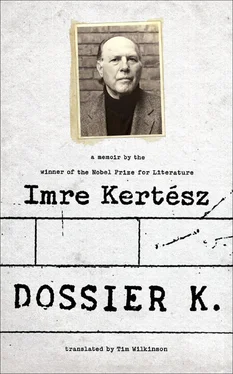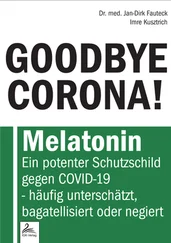Astounding! But that reminds me of something for which I have been seeking an answer ever since my first encounter with your books. Were the Jews of Hungary really quite so ill-informed? Quite so much in the dark about what was in store for them?
I can only speak for my own experiences in Budapest, insofar as I picked up anything from my immediate circle of family and acquaintances: nobody here suspected anything, and I never heard of any place called Auschwitz. All Jewish families would listen in secret to the BBC radio broadcasts — at least until Jews were obliged to “hand over” their wireless sets, that is — and if they heard anything that ruffled their optimism, they would just dismiss it as “English propaganda.”
What lay behind that?
There were many causes, both historical and psychological. There is no question that after the obliteration of the Hungarian Eighth Army on the Don bend — in the course of which countless Jews who had been sent there on labor service, to be used in mine-clearance work on the battlefield, also died — the enthusiasm for war let up. That momentary relief, in 1943, deluded the Jewish population, who believed that they were in a privileged position. Rumours about the shuttlecock diplomacy being conducted by Prime Minister Miklós Kállay went the rounds, with people saying that “a deal” was going to be struck with the Allies behind the backs of the Germans. Then on March 19th, 1944, the Germans occupied Hungary, and at Birkenau they made a start on enlarging the crematoria and laying a new railway track in preparation for the arrival of transports from Hungary. A high-ranking SS officer by the name of Eichmann arrived in Budapest to be greeted with a considerable sum of money from the Jewish Council. At the same time they were given a copy of the so-called “Vrba-Wetzlar Report” or the “Auschwitz Protocols.” Rudolf Vrba and Alfred Wetzlar, a pair of Slovak Jewish prisoners, after lengthy and very thorough preparatory work, managed to escape from the Auschwitz concentration camp and to assemble a memorandum in which they gave a precise description of what was happening in that death factory. Considerable space was also devoted to the preparations that were under way to handle the consignments of Jews from Hungary, already then, with the preparations as yet still in progress, anticipating the disastrous fate that would meet those consignments. The Jewish Council in Hungary discussed the report and decided not to make its contents known to the Jewish populace of several hundred thousand, whom the gendarmes had in fact already started to herd together into hastily improvised ghettos.
How is the Jewish Council’s decision to be explained?
It is inexplicable in my view. I could perhaps give your question the highly paradoxical answer that they wished to preempt a panic breaking out among the Jewish population.
A bitter paradox … What is most depressing of all is that, sadly, it is all too near the mark. So, you had no idea either where that train was taking you .
Nobody did. There were sixty of us in the cattle truck, and not one of us had heard the name “Auschwitz.”
That scene in Fatelessness when Köves spots a deserted railway station through the wired-over window slot of the carriage and picks out the name “Auschwitz” from the building — is that fiction, or did it happen in reality?
As true to life as could be, and yet it also served the novel’s fictional structure superbly.
So, in relation to that, no worry crossed your mind that it might be anecdotal?
No, because I couldn’t have dreamed up anything better if I tried. Besides which, I wouldn’t have dared to dream up something like that.
There, you see …
See what?
The fact that when it comes down to it you do feel bound by reality; you do set down real life, and lived reality at that. There’s the football pitch, for example. You write in Galley Boat-Log that you have a clear recollection of one at Auschwitz …
Birkenau.
Fair enough! Of the football pitch at Birkenau, and yet you did not dare to write that in your novel until you happened to come across a mention of it by Borowski .
In his short story This Way for the Gas, Ladies and Gentlemen . Tadeusz Borowski is one of those writers you can count on the fingers of two hands who in the death camps discovered something important about the human condition and were capable of expressing it. He wrote five or six powerful short stories in such a crystal-clear style and in such a brilliant, classical form that almost reminds me of the novellas of Prosper Mérimée. And then he too committed suicide. But tell me, now, why do you crow so much each and every time you catch me writing some true, actual detail, or “reality,” as you put it?
Because you blur reality with your fiction theory. You cut yourself out of your own stories .
There’s no question of that. It’s just that my proper place is not in the story but at the writing desk (admittedly, I didn’t yet have a piece of furniture like that at the time). Allow me to call on one or two great exemplars as my witnesses. Would War and Peace , for instance, still be a good book even if Napoleon and the Russian campaign had never existed?
I need to think about that … Yes, I think so .
But the fact that Napoleon really did exist and the Russian campaign was a reality, and what’s more all of it was written down with scrupulous precision, with the historical facts being kept in view — that makes the book even better, doesn’t it?
Yes, it does .
And if Fabrizio del Dongo, the young hero of Stendhal’s The Charterhouse of Parma , wanders irresolutely and uncomprehendingly across fields and groves and continually stumbles into cannon and cavalry units, hears incomprehensible shouts and commands — that’s quite an interesting fiction in itself, is it not?
It is .
But if we know that he happens to be cutting across the site of the Battle of Waterloo, that makes it even more interesting, doesn’t it?
That’s right .
Now, if it’s something concerning the Battle of Waterloo, that constrains one to accuracy because the Battle of Waterloo is a historical fact.
I see where you’re heading, and I appreciate your Socratic method, but let me ask something in turn. You told me what lengths your mother went to once she knew you had got into police custody — and what a ludicrous expression that is in your case! You said nothing, however, about how she came to know what had happened, because to the best of my knowledge you were living with your stepmother at that time .
My stepmother wrote a letter to my mother in which she told her about my disappearance. What a letter, though! The style! “Dear Goldie (that was my mother’s name: Goldie), There is an unpleasant piece of news about which I have to inform you …” “Naturally, I made inquiries at once …” The word “naturally,” and the various euphemisms, I “filched” from my stepmother’s vocabulary and then made use of in Fatelessness . A ruinous personality she had.
What do you mean by “ruinous”?
I’m not really sure … There is a sentence in Gombrowicz’s novel Ferdydurke —I may be quoting it inaccurately, but it goes something like: “Have you ever known the sort of people inside of whom you dwindle in size?” Well, my stepmother was like that.
Which suggests you had a tough time with her .
And she, the poor soul, had an even tougher time with me. I couldn’t stand the … the … To be brief, I couldn’t stand her at all; her taste most of all. Just imagine, she had this medium-grey, or rather light-grey, two-piece costume, and to go with that she bought a little narrow-brimmed red hat, a red lacquer purse, and red shoes, and she thought that they made her look frightfully elegant. And she would go out like that with me for a walk—“bunk off a little” was the way she put it. It was dreadful; I could have died. On top of everything, she wanted me to call her “Momsie,” and my father backed up this fervent wish. Anyway, they tried and tried but no way did it work; the word simply would not come out.
Читать дальше












